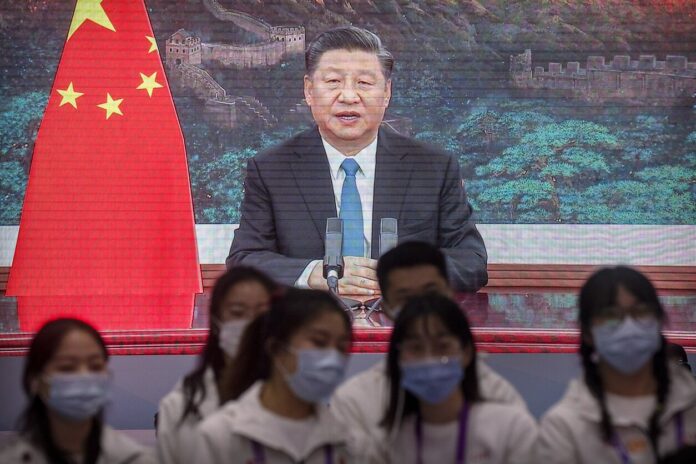
Lithuanian Radio/Television (LRT.lt) recently published an important review of Lithuanian relations with China. Apparently, Lithuania’s move to leave China’s 17+1 format and build cooperation with Taiwan has angered Beijing. In the Baltics, resentment towards China’s overtures in the region has been growing for some time.
This year, on February 9, the Baltics appeared on China’s radar when the 17+1 summit, presided by Xi Jinping himself, was snubbed by Estonia, Latvia, Lithuania, and several other countries that sent ministers instead of heads of state. Before the summit, it was announced that Lithuanian president Gitanas Nausėda would not participate, as there would be no important decisions for Lithuania at the meeting. The 17+1 format was launched in 2012 for China to engage with Central and Eastern European nations, of which 12 are European Union members. Although Beijing claims the forum aims at facilitating cooperation, critics have pointed to political costs.
Chinese leadership was hoping to receive the presidents and prime ministers in Beijing, but due to the pandemic the meeting took place remotely. On the night before the summit, the Chinese Foreign Ministry summoned the Lithuanian and Estonian ambassadors to explain their leaders’ decision, according to Edward Lucas from the Center for European Policy Analysis (CEPA) in Washington, but the Baltics did not waver.
In February, Lithuania’s parliamentary Committee on Foreign Affairs agreed that the country should leave the 17+1 format altogether, with Foreign Minister Gabrielius Landsbergis later saying that it has brought “almost no benefits” and is used to “divide Europe”.
According to the committee’s chairman, Žygimantas Pavilionis, Lithuania should focus on working with democratic countries in the region, especially because China has aims to take over the strategic infrastructure in various countries.
Estonia, Latvia and several other countries in the region are also considering similar moves, he said, adding that Lithuania was planning to strengthen relations with Taiwan. This year, Vilnius plans to open an economic representation office in Taipei.
Besides the Baltic states, the 17+1 format launched in 2012 includes Albania, Bosnia and Herzegovina, Bulgaria, Croatia, the Czech Republic, Greece, Hungary, North Macedonia, Montenegro, Poland, Romania, Serbia, Slovakia, and Slovenia. In previous 17+1 summits, Beijing pledged to invest in local infrastructure, including ports, roads and industries that have failed to attract Western capital, boost railway cargo volumes, develop communications technologies, and open its market to Eastern European imports, thus making the region China’s gateway to Europe. But the investment that China promised has failed to materialize, according to Chris Miller, director of the Eurasia Programme at the Foreign Policy Research Institute (FPRI).
During the summit, Xi Jinping made new promises to turn Central and Eastern Europe into the “number one region” in the world where China’s ambitious Belt and Road Initiative (BRI) would be implemented. According to MP Pavilionis, there have been no economic returns, only economic threats or even threats to Lithuania’s national security.
In January, the Lithuanian government decided to bar China’s state-owned firm Nuctech from supplying X-ray scanning equipment to local airports over national security concerns.
Criticized by the Chinese embassy in Vilnius, the decision caught the attention of Global Times, the daily of the Chinese Communist Party, where a member of the Chinese Academy of Sciences said that “by playing hardball with China, its primary purpose is to give in to the US”.
Intelliengence agencies in the Baltic states have previously reported about the growing scale of Chinese espionage in the region, which the Global Times said was an attempt to “reinforce ‘The China Threat’”.
Most Central and Eastern European countries have already signed memoranda of understanding with the US on 5G communications security, effectively banning Chinese equipment from their network infrastructure. For Central and Eastern European countries, there is no “choice” between the West and China – all NATO countries in the region understand that their security depends on the United States.



























